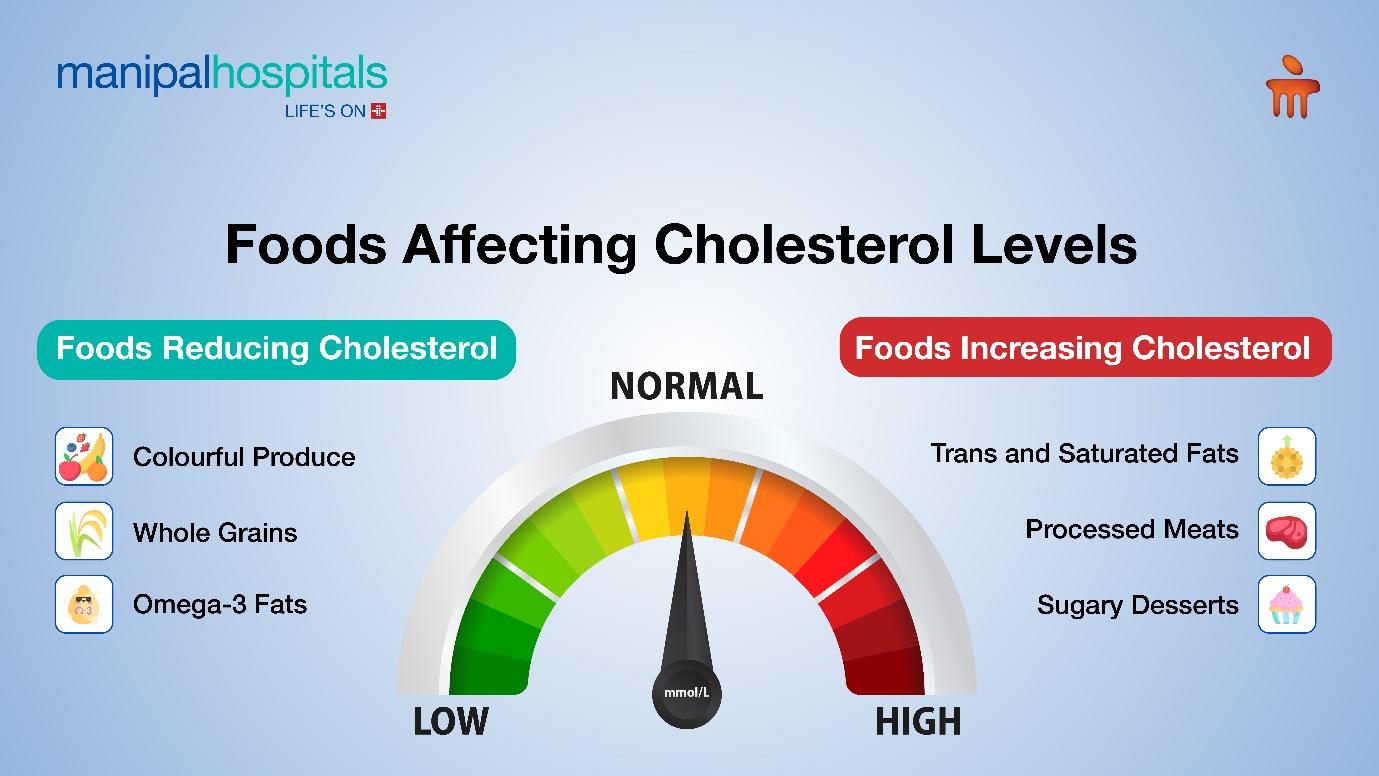
Many instances can incite fear in individuals, with one of them being seeing the cholesterol levels in lipid profile tests. While excessive cholesterol is alarming, it is important to note that our body's internal functioning requires normal amounts of cholesterol. Many hormones such as oestrogen, progesterone, testosterone, corticosteroids, mineralocorticoids and androgens contain cholesterol. Moreover, the cholesterol in skin cells enables them to make vitamin D from sunlight.
The levels of cholesterol in the blood vary depending on the amounts of LDL (low-density lipoproteins) or "bad" cholesterol and HDL (high-density lipoproteins) or "good" cholesterol present. LDL carries cholesterol to all the cells in the body so they can utilise it. HDL carries cholesterol from the body's tissues to the liver, where the liver metabolises the cholesterol and then excretes it from the body.
However, higher LDL and lower HDL can cause excess cholesterol to accumulate in the blood vessels leading to conditions like coronary heart disease and atherosclerosis. Hence consuming foods that provide healthy dietary cholesterol, lower LDL and increase HDL can help keep these conditions at bay.

Synopsis
Foods that Lower Cholesterol or “Good Cholesterol Foods"
Here is a list of foods that reduce cholesterol levels in blood( good cholesterol foods).
1. Colourful Produce
Colourful fruits and vegetables contain lower amounts of cholesterol and fats while being high in fibre, they also house various beneficial compounds such as antioxidants and micronutrients, making them an excellent foundation for a good diet. Fruits like apples, grapes, strawberries, pears, and citrus fruits are rich in pectin, which can help lower LDL levels. The high fibre content in cauliflower, broccoli, Brussels sprouts, and celery prevents the absorption of certain types of cholesterol into the intestine. Foods like carrots, spinach, and red onions are also high in sterols, which reduces LDL levels and increases the body's ability to better absorb cholesterol.
2. Whole Grains
Oats, barley and wheat are high in soluble fibre, complex carbohydrates and some amounts of protein which can help counteract high cholesterol levels.
3. Lean Meats and Beans
Leaner cuts of meats that have 92% less fat are extremely good protein sources. Beans and legumes are also good sources of protein, fibre and sterols. High protein levels regulate cholesterol levels by influencing its synthesis, uptake and transportation.
4. Foods rich in Omega-3s
Fatty fishes like salmon, shrimp, tuna, sardines and mackerel are rich in Omega-3 fats. These healthy fats apart from boosting brain health, also help lower LDL levels.
5. Nuts and Seeds
Along with boosting HDL and reducing LDL, almonds, peanuts, walnuts and various seeds are jam-packed with nutrients that are good for heart health.
Consult our dietitian in Goa if you need to know more about HDL cholesterol in food and get a personalised diet plan.
Foods that Increase Cholesterol or “Bad Cholesterol Foods”
To maintain balanced cholesterol levels, limit foods that raise cholesterol and harm health, such as:
1. Foods high in trans fats
Foods high in trans fats and saturated fats raise blood cholesterol levels, specifically increasing the levels of bad cholesterol or LDL. A diet high in these fats causes fats to accumulate in the inner lining of blood vessels which increases the risk of heart disease. Foods that are high in trans fats and saturated fats include packaged foods, deep-fried foods, full-fat dairy products, and frozen foods. Avoid such foods with most cholesterol.
2. Processed meats
Processed meats such as bacon, hot dogs and sausages are made from the fattiest parts of the meat. Not only are these meats low in nutrition, but they are also high in saturated fats, cholesterol and sodium.
3. High sugar foods
Too much sugar can cause weight gain, heart disease, diabetes and cholesterol. Moreover, high sugars augment triglyceride levels which can be a risk factor for coronary heart disease. These foods include cookies, cakes, ice cream, pastries, and other sweets.
Consult our nutrition and dietetics hospital in Goa if you need to know about foods to increase cholesterol and avoid them.
The Key is Mindful Intake
While the aforementioned foods are harmful, eating them occasionally is okay and will not significantly affect blood cholesterol levels. Moderation and portion control is really important for all foods. We should not view cholesterol as a scary word, as dietary cholesterol in moderation has only minimal effects on blood cholesterol levels.
Changing your mindset to include all foods in moderation promotes a healthy approach. This allows you to listen to your body and trust that you can nourish it when hungry but also stop eating when satisfied.
And if you’re not sure where to start with a healthy and sustainable eating plan, reach out to the experts at the Department of Nutrition and Dietetics at Manipal Hospitals, Goa. Our licensed nutritionists and registered dietitians can formulate a diet that works with your health goals.
FAQ's
Saturated fats and trans fats tend to raise LDL (bad) cholesterol levels the highest. These are found in fatty meats, butter, cheese, fried foods, baked goods, and many packaged snacks.
Not necessarily. Lean proteins like skinless chicken, fish, and egg whites are relatively low in saturated fat. However, fatty cuts of red meat, bacon, sausages, and full-fat dairy products are high in saturated fats.
Foods high in soluble fibre like oats, beans, lentils, fruits and vegetables can help reduce LDL. Foods with plant sterols/stanols like nuts, seeds, and fortified spreads also lower LDL.
Monounsaturated and polyunsaturated fats can help lower LDL and raise HDL cholesterol. Good sources include olive oil, avocados, fatty fish, and nuts/seeds.



















 5 Min Read
5 Min Read











